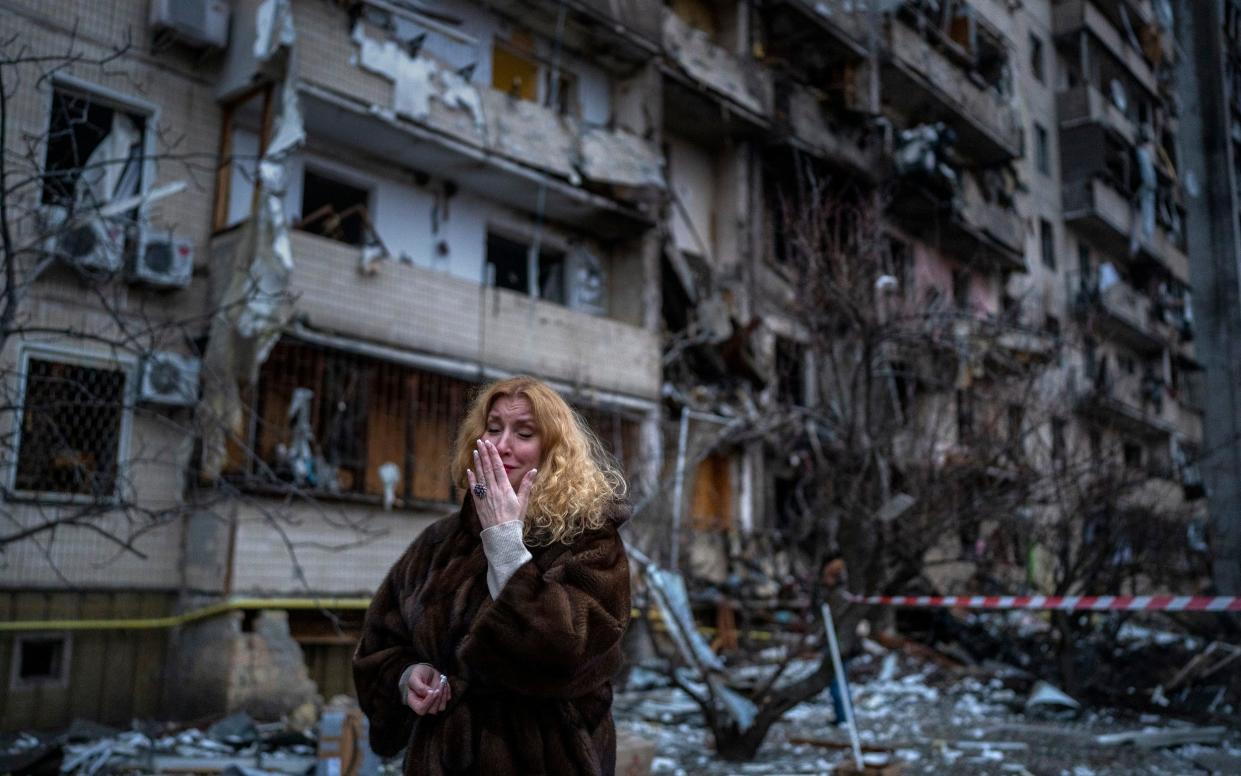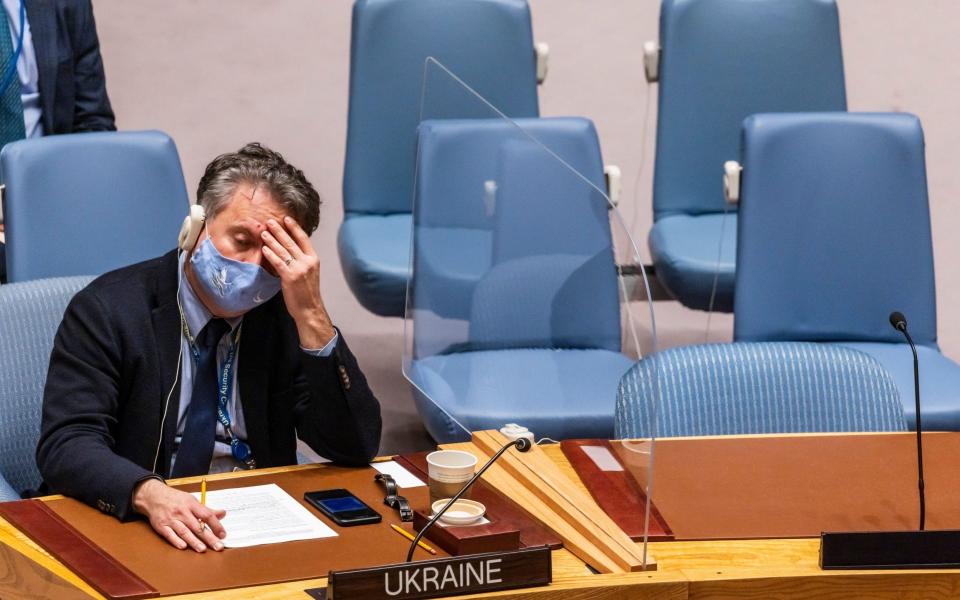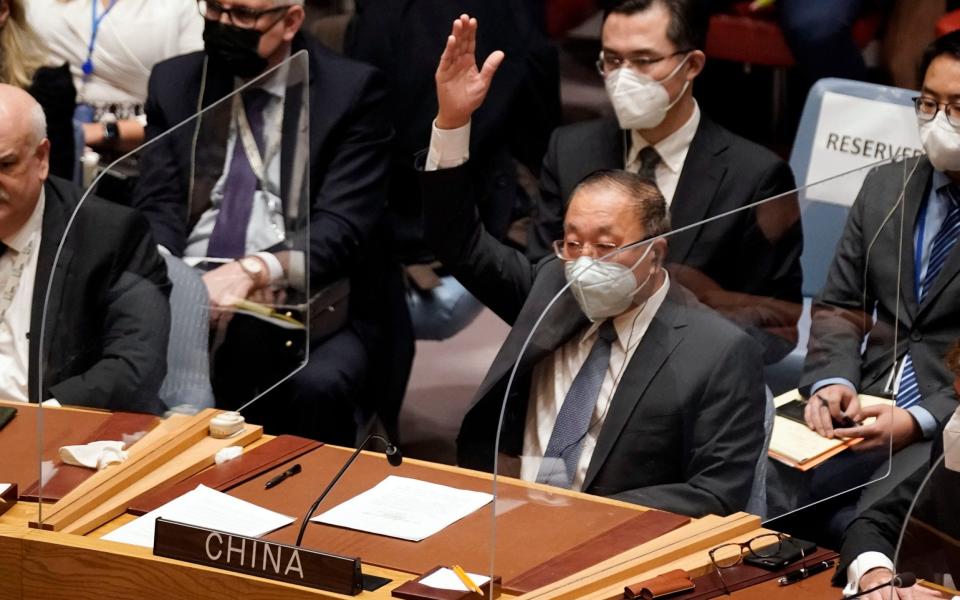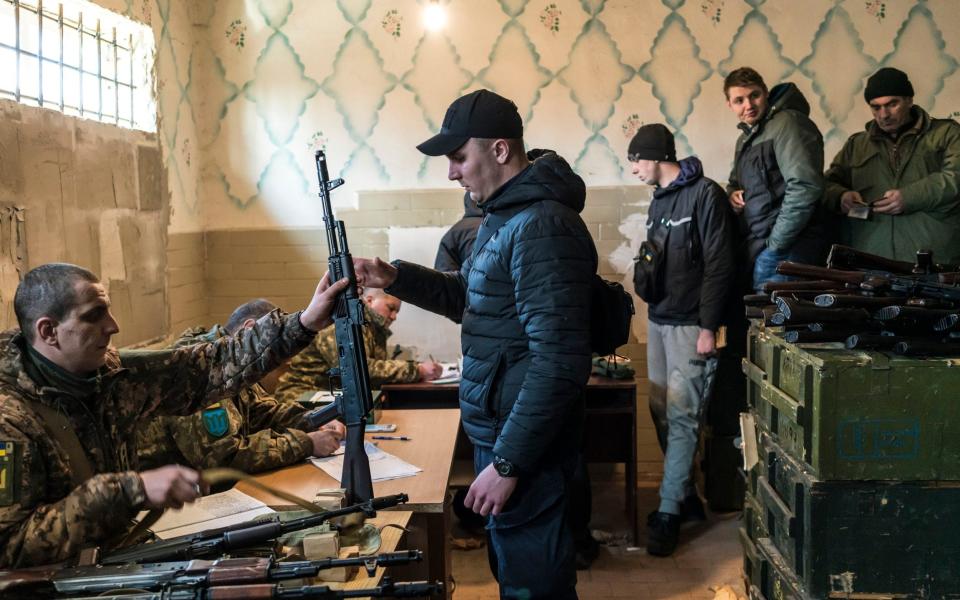Russia facing total isolation over Ukraine after ally China refuses to back them at UN

Russia was looking increasingly isolated in its decision to invade Ukraine, after China, one its closest allies, chose not to side with Moscow at a key vote at the United Nations.
Russia, as expected, vetoed a UN Security Council resolution late on Friday night that sought to condemn the country's "aggression" against Ukraine and call for the immediate withdrawal of its troops.
Eleven of the council's 15 members voted for the motion, which was co-authored by the US and Albania. India and the UAE offered abstentions.
Most surprisingly, however, China, a staunch and longtime ally of Moscow, became the third country to abstain, leaving Russia (which wields veto power as the UNSC's current chair) alone on the international stage.
"Make no mistake, Russia is isolated. It has no support for the invasion of Ukraine," said Barbara Woodward, Britain's ambassador to the UN, after the vote. "You can't veto the truth."

While it may seem a small decision, it sent a much bigger signal - that President Vadimir Putin no longer has China’s unconditional support.
China and Russia - important trading partners - have historically been in lockstep on major issues, including most recently Moscow’s military involvement in Syria.
China consistently voted with Russia, even during the most brutal days of the Syrian civil war when barrel bombs were being dropped on civilian populations.
The invasion of Ukraine, however, was initially met with silence from China. President Xi Jinping later issued a rather cold statement.
A month earlier, following a meeting in Beijing during the Winter Olympics, the two leaders announced that the friendship between their countries had “no limits” and there would be no “forbidden” areas of cooperation.

But if reports are to be believed, Mr Xi was surprised by the size and scope of Mr Putin’s attack plan this week.
With severe sanctions now imposed on Russia by Western powers, Mr Putin will need China more than ever as an investor and buyer of Russian oil, wheat and other products.
Beijing has taken some modest steps to help. On Thursday, as rockets flew over the Ukrainian capital of Kyiv, it lifted restrictions on Russian wheat imports that had been in place for decades - though it had been a decision months in the making.
The costs for China of fence-sitting over an invasion splitting Europe also grow by the day.
As Russia’s largest trading partner, China has significant financial ties with Moscow that will be vulnerable to Western sanctions.
Europe, meanwhile, remains a top Chinese trading destination. More than a dozen European countries have signed onto China's Belt and Road Initiative.

Western diplomats privately told The Telegraph they are confident they can peel China away from Moscow.
Tilting toward Russia during the Ukraine crisis would position it as an enabler of a country that has now taken on pariah status.
But it is early days.
So far sanctions have been limited, experts point out. “If we go full-in on sanctions, the cost is humongous for China,” said Alicia García Herrero, chief economist for Asia Pacific at Natixis in Hong Kong.
How vocal Beijing plans to be against the war depends on its plans for the self-governed island of Taiwan, which it has threatened to invade.
China will be watching with interest the US and the EU’s response to Ukraine in the coming weeks.
If Washington and Brussels are able to impose significant costs on Russia, leaders in Beijing may think twice about striking.

